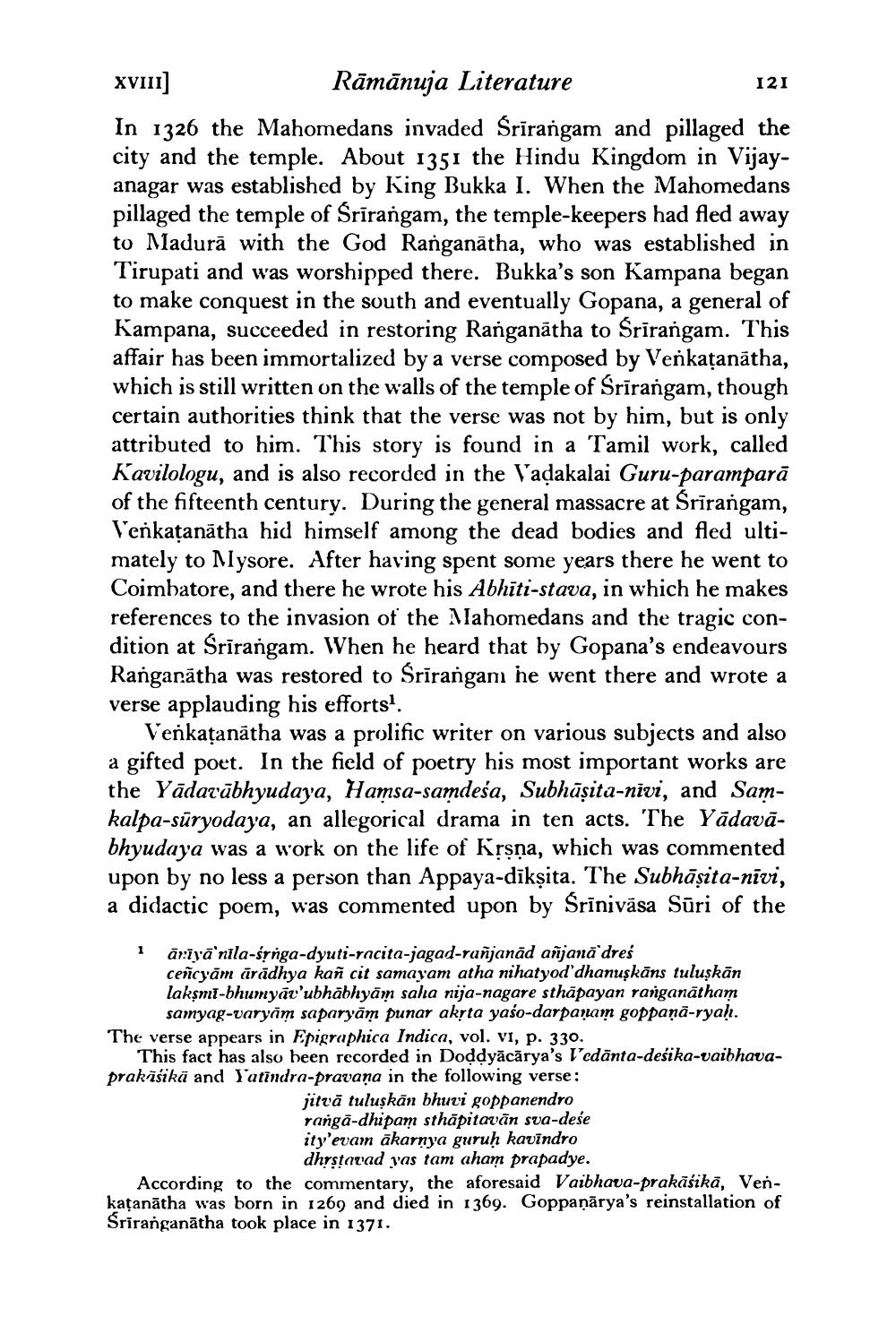________________
XVIII]
Rāmānuja Literature
In 1326 the Mahomedans invaded Srirangam and pillaged the city and the temple. About 1351 the Hindu Kingdom in Vijayanagar was established by King Bukka I. When the Mahomedans pillaged the temple of Srirangam, the temple-keepers had fled away to Madura with the God Ranganatha, who was established in Tirupati and was worshipped there. Bukka's son Kampana began to make conquest in the south and eventually Gopana, a general of Kampana, succeeded in restoring Ranganatha to Srirangam. This affair has been immortalized by a verse composed by Venkatanatha, which is still written on the walls of the temple of Srirangam, though certain authorities think that the verse was not by him, but is only attributed to him. This story is found in a Tamil work, called Kavilologu, and is also recorded in the Vadakalai Guru-paramparā of the fifteenth century. During the general massacre at Srirangam, Venkatanatha hid himself among the dead bodies and fled ultimately to Mysore. After having spent some years there he went to Coimbatore, and there he wrote his Abhiti-stava, in which he makes references to the invasion of the Mahomedans and the tragic condition at Srirangam. When he heard that by Gopana's endeavours Ranganatha was restored to Srirangam he went there and wrote a verse applauding his efforts1.
Venkatanatha was a prolific writer on various subjects and also a gifted poet. In the field of poetry his most important works are the Yadavābhyudaya, Hamsa-samdeśa, Subhāṣita-nivi, and Samkalpa-suryodaya, an allegorical drama in ten acts. The Yadavābhyudaya was a work on the life of Krsna, which was commented upon by no less a person than Appaya-dikṣita. The Subhāṣita-nīvi, a didactic poem, was commented upon by Srinivasa Sūri of the
1
121
ārīya'nila-sṛnga-dyuti-racita-jagad-rañjanād añjanā dres
cencyām ārādhya kañ cit samayam atha nihatyod' dhanuṣkāns tuluṣkān lakṣmi-bhumyav'ubhābhyām saha nija-nagare sthāpayan ranganatham samyag-varyam saparyām punar akṛta yaso-darpanam goppaṇā-ryaḥ.
The verse appears in Epigraphica Indica, vol. VI, p. 330.
This fact has also been recorded in Doddyācārya's l'edanta-desika-vaibhavaprakisika and Yatindra-pravana in the following verse:
jitva tuluskan bhuvi goppanendro ranga-dhipam sthāpitavan sva-dese ity'evam akarnya guruh kavindro dhṛṣṭavad vas tam aham prapadye.
According to the commentary, the aforesaid Vaibhava-prakāśikā, Venkatanatha was born in 1269 and died in 1369. Goppaṇārya's reinstallation of Sriranganatha took place in 1371.




